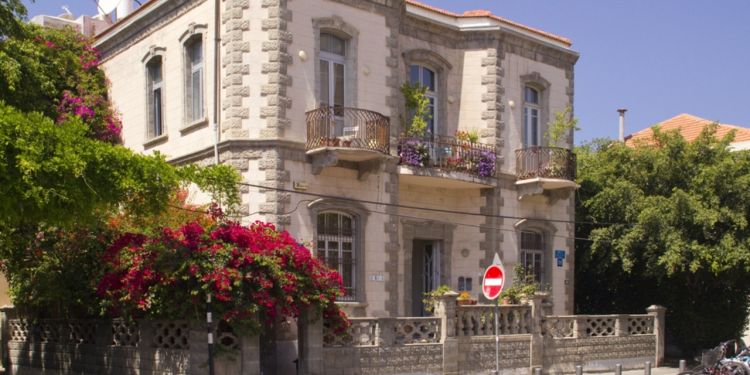Accommodation in Israel

Looking for an apartment in the Holy Land can be quite a challenge, although not for everyone. It all depends on your budget and specific preferences.
Living in Israel
If you're aiming for a comfortable apartment that's mold-free, has even walls (which isn't always guaranteed), essential air conditioning (given that summer temperatures can hit 40 degrees), well-maintained plumbing, a desirable balcony, and situated in a central yet peaceful neighborhood with convenient access to all necessary amenities and shops – as we often say in Israel, “within spitting distance” – in one of the country's major cities, you'll need to be well-prepared financially. Take Tel Aviv, for instance, which is the third most expensive city globally – apartment prices occasionally soar to unprecedented levels. As for Jerusalem, it has no reason to feel envious of its coastal counterpart in this regard.
However, if you're willing to venture beyond the bustling urban centers and explore less renowned locales while making sensible compromises, you can indeed stumble upon cost-effective and even fairly reasonable housing options.
Opting for smaller, less familiar towns like Beer-Sheva in the Negev desert or coastal spots like Netanya and Ashdod, which have become homes to many French speakers, can be a promising initial decision. You'll discover more spacious and well-equipped residences at more affordable prices in such places.
Rental prices in Israel
The cost fluctuates based on the location. Whether it's in Tel Aviv or Jerusalem, within the city center, or in affluent neighborhoods, prices can skyrocket. As an illustration, for a two-bedroom apartment, the cost in these urban areas can range from 3,000 to 8,000 shekels per month (equivalent to 800 to 2,000 euros), contingent on the specific neighborhood and the state of the apartment.
On the flip side, the situation is markedly different in the northern city of Haifa and the southern city of Beer-Sheva. Prices are notably more affordable in these major cities, making it relatively straightforward to come across well-maintained, roomy, and renovated three-room apartments for a monthly cost of around 3,000 shekels.
Formalities for renting a property in Israel
Therefore, although the apartment hunt can be challenging financially, once you've discovered the ideal match that aligns with your budget and fulfills your desires, the most arduous phase is essentially over. Finalizing the agreement doesn't pose a significant hurdle. Comparatively, tenant rights are less safeguarded in Israel than in other places. For example, landlords' eviction processes and lease termination are less intricate, resulting in a more straightforward rental contract signing. You're spared the need to provide numerous documents, guarantors, and tax records, making the process considerably more adaptable.
During the pursuit of housing in Israel, just like in other aspects of the country's economic life, interactions are immediate, and events unfold rapidly. Therefore, being quick to respond is essential. Once you've sealed the deal, there will be ample time to unwind. Those who act swiftly are often the ones who reap the benefits first.
In addition to providing proof of income, landlords frequently request an extra signature from a guarantor. Following that, you'll be required to procure twelve post-dated checks equivalent to the monthly rent (one for each month of the lease) and security checks for water and electricity expenses if you have any outstanding charges upon departure. Typically, deposit checks are left uncashed, although this practice can differ depending on the landlord.
Following discussions, often in person and sometimes clarified through WhatsApp, the process advances to signing the agreement – a step that might occur in various locations, occasionally even in amusingly unconventional settings like a car seat. If the residence is ready for immediate occupancy, you can depart with the keys. Otherwise, keys will be handed over in alignment with your move-in date. There's also the option to request early access for storing belongings, particularly if the property is undergoing renovations, or to gain entry for essential measurements. Open dialogue and negotiation are always possible and encouraged.
Where to find accommodation in Israel?
When embarking on the quest for an apartment, just like any search nowadays, the Internet is an indispensable tool. Numerous websites are available, yet they frequently present similar options. Nevertheless, a particular “hub” stands out among the rest for this type of endeavor, a hub highly favored by Israelis: Facebook. Facebook takes the lead with its Marketplace and local community groups, as its functionality aligns seamlessly with the Israeli approach.
It's simple, straightforward, and gets the job done. Both individuals and real estate agents frequently share their rental listings, so it's crucial to ascertain the nature of the poster – whether they're a private individual or a professional agent – before engaging in any transactions. Those searching for housing can easily ask questions by messaging or leaving comments in response to an advertisement, facilitating communication. Equally important is the selection of which groups to join. If you have a specific neighborhood in mind, type its name into Facebook's search bar, join the relevant groups that pop up, and be updated on their activities.
If time or patience – or perhaps both – are in short supply, or if the process appears overly intricate for your initial experiences in this new country, you also have the option to seek assistance from a real estate agent. These agencies are abundant, and their signage is hard to overlook. Missing them is practically impossible. Of course, relying on an agent for your search comes with extra expenses – typically around the equivalent of one month's rent – so it's wise to clarify their terms before relying on them.
Immigrants new to Israel who don't have accommodation can receive support and may be provided temporary housing in integration centers. It's a good idea to inquire about these entitlements either through the Jewish agency in your home country or with the Ministry of Immigrant Absorption once you've arrived in Israel.
Can I buy a home in Israel as an expatriate?
The guidelines for purchasing real estate in Israel align with those elsewhere. You must possess the necessary funds or, at the very least, the resources to support your acquisition. New immigrants aged 18 to 35 can take advantage of favorable loans with preferential rates.
The minimum down payment depends on age and status, so checking with your bank is best.
Both legal residents and foreign citizens residing abroad have the opportunity to purchase an apartment. It's also considered a good investment.
Seeking legal counsel is recommended when embarking on these actions. Nevertheless, the initial step before purchasing a property is to ensure the seller is the rightful owner by verifying the Tabu, the land registry. Subsequently, the focus shifts to financial matters. The primary challenge often involves transferring funds from overseas and reporting the acquisition to the tax authorities. However, it's worth noting that comprehending and navigating the Israeli banking system is generally not a complex task.
Which Israeli city to settle in?
Tel Aviv
Numerous expatriates opt to reside and work in Tel Aviv due to its reputation as a hub for high-tech and business endeavors. This city offers a wealth of career prospects, cultural experiences, recreational options, and opportunities for connections. However, to be a part of the vibrant core of Israel, one must allocate a significant budget. Comparable to Manhattan in New York, the downtown area is often financially out of reach regarding housing budgets.
The northern part of the city is the most upscale, characterized by its leafy and serene streets. Here, quaint two- or three-story houses harmoniously align just a stone's throw away from bustling main roads alongside luxurious skyscrapers. Unsurprisingly, this makes it the priciest neighborhood in the city.
In the city's southern section, there's a chance – at least for now – to come across favorable opportunities, especially within the distinctive, untouched structures. These buildings often exude a certain charm, occasionally verging on dilapidation, notably in the Levinski or Shapira districts.
If you're searching for a bohemian atmosphere mere steps away from the sea and don't mind shelling out a substantial sum for housing, Neve Tzedek is the ultimate neighborhood to consider.
Naturally, there are also the suburban areas, soon to be connected to the city center via a tramway. Among these, certain suburbs hold higher appeal than others. On one end, you have the relatively more middle-class districts like Ramat Hasharon, Ramat Gan, and Ramat Aviv. On the other hand, you have the bustling locales of Holon, Bat Yam, and Rishon-le-Zion, which are popular choices. These are charming towns where you can comfortably reside in well-appointed apartments without breaking the bank.
Jerusalem
Indeed, Jerusalem, renowned as the sacred city and a central hub for the three major monotheistic faiths, holds a distinctive status worldwide. Consequently, housing in Jerusalem remains relatively pricey despite real estate costs being less compared to Tel Aviv. However, if you are patient enough to move away from the city center or the most sought-after districts and lower your standards, you can find affordable or even budget-friendly accommodation.
One distinctive aspect of Jerusalem is its rich ethnic, religious, and social diversity. The city is home to Jews with varying levels of religious adherence, ranging from the non-religious to the ultra-Orthodox. Although they interact in communal spaces such as streets, buses, and medical facilities, their residential areas often differ.
For example, an atheist who enjoys a summer stroll in shorts and a T-shirt is not advised to settle in an ultra-Orthodox neighborhood, which could create unbearable tensions. Before choosing an area, for example, because rents seem particularly low, it's a good idea to take a stroll to get a feel for the atmosphere or to find out more. Interestingly, religious neighborhoods often tend to offer more budget-friendly housing options.
Moshava Germanit, Baka, Ramot, and Bayit Vagan stand out as the primary French-speaking neighborhoods in Jerusalem. While their prices may not be the most affordable, these areas can serve as a valuable starting point for integration, helping you avoid feeling too much like an outsider in the initial stages.
Useful links:
https://www.jerusalem.fr/quartiers
https://www.facebook.com/groups/2093942904167149
https://www.facebook.com/groups/445652762281762









